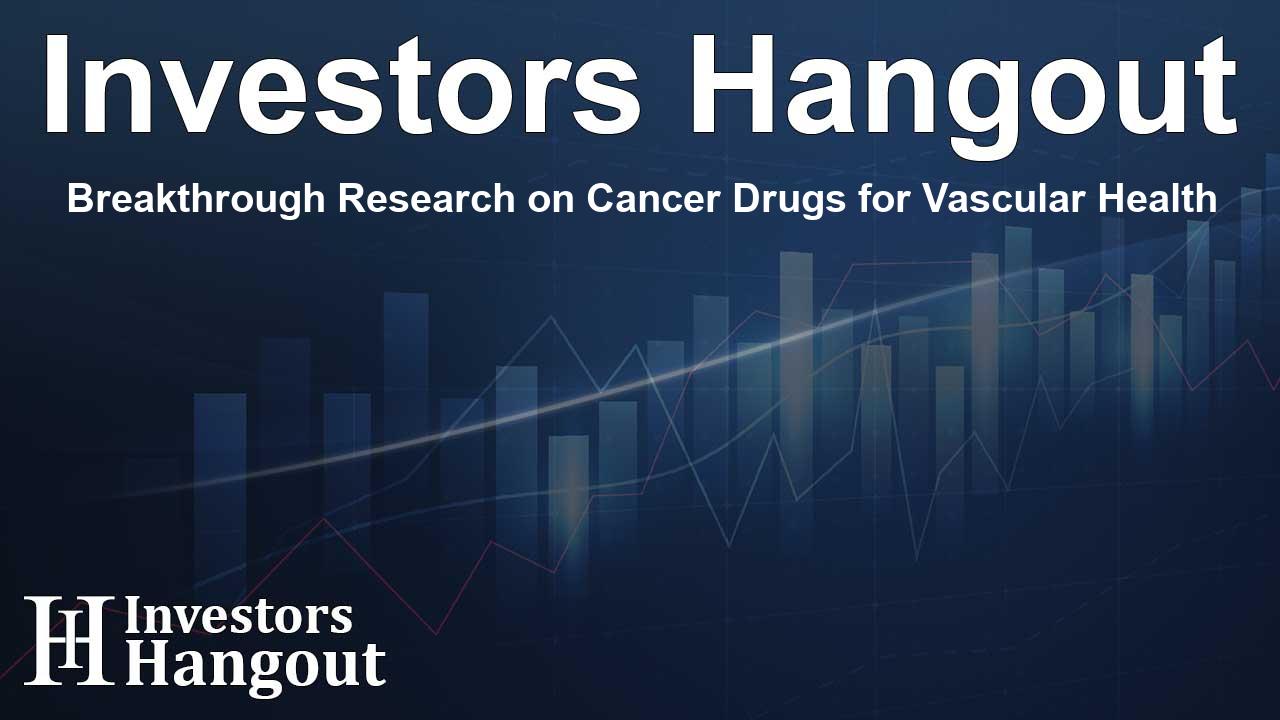Breakthrough Research on Cancer Drugs for Vascular Health

Cancer Drugs: A New Hope for Vascular Disease Treatment
A groundbreaking study suggests that medications typically used to combat breast cancer may also provide valuable treatment options for hereditary hemorrhagic telangiectasia (HHT). HHT is a rare genetic disorder characterized by the abnormal formation of blood vessels, which can lead to significant health challenges. The research conducted by The Feinstein Institutes for Medical Research highlights the potential of these established cancer drugs to alleviate some of the complications associated with this condition.
Understanding Hereditary Hemorrhagic Telangiectasia
HHT affects over 1.4 million individuals globally and is known for causing severe vascular issues. The disorder leads to the formation of numerous abnormal blood vessels that can rupture and bleed, posing life-threatening risks. Despite its prevalence, little is understood about the molecular mechanisms underlying HHT, making it a challenging condition to treat. The recent findings offer a promising avenue for exploration.
The Role of CDK6 in Blood Vessel Formation
Research led by Philippe Marambaud, PhD, a prominent professor at the Institute of Molecular Medicine at the Feinstein Institutes, has identified a critical link between a protein known as CDK6 and abnormal endothelial cell growth. The study reveals that CDK6 plays a significant role in promoting excessive cell proliferation, which is detrimental in patients with HHT. By focusing on this mechanism, researchers hope to develop effective therapies using existing cancer medications.
Utilizing FDA-Approved Drugs
The researchers tested Palbociclib and Ribociclib, both of which are FDA-approved drugs that inhibit CDK6 protein activity. In their experiments with animal models showing signs of HHT, these drugs effectively halted the proliferation of endothelial cells, suggesting a new therapeutic strategy for this debilitating condition. This innovative approach not only underscores the versatility of these medications but also emphasizes the importance of repurposing established drugs to address significant medical needs.
Benefits of Repurposing Established Medications
The ability to repurpose existing medications presents a significant opportunity for treating various diseases, including vascular conditions like HHT. Dr. Kevin J. Tracey, MD, president and CEO of the Feinstein Institutes, emphasizes that leveraging safe and effective drugs already on the market can expedite the development of new therapies with proven efficacy. This strategy is crucial in addressing the pressing health concerns related to abnormal blood vessel development.
Future Implications and Research Directions
The study not only highlights the immediate potential of these drugs for HHT but also sets the stage for further investigations into how cancer treatments might address various vascular diseases. Ongoing research will likely examine a broader range of FDA-approved medications to identify additional opportunities for repurposing, widening the therapeutic options available for patients with vascular complications.
In summary, the exciting findings from the Feinstein Institutes represent a significant step forward in our understanding of HHT and its treatment. By studying the impacts of cancer medications on vascular health, researchers are paving the way for innovative therapies that could change lives. This research exemplifies the power of scientific inquiry and the potential for transformative medical advances.
Frequently Asked Questions
What is hereditary hemorrhagic telangiectasia (HHT)?
HHT is a genetic disorder that leads to abnormal blood vessel formation, potentially causing bleeding and other serious health issues.
How can cancer drugs help with HHT?
Cancer drugs like Palbociclib and Ribociclib may control excessive cell growth associated with the condition by targeting the CDK6 protein.
Who led the recent research on cancer drugs for vascular disease?
The research was led by Philippe Marambaud, PhD, at the Institute of Molecular Medicine within the Feinstein Institutes.
What is the significance of repurposing FDA-approved drugs?
Repurposing established medications allows for faster development of new therapies, leveraging their known safety and efficacy to treat different diseases.
What are the future research directions based on these findings?
Future studies will assess a wider range of FDA-approved drugs for their potential effectiveness in treating other vascular diseases, expanding treatment options.
About Investors Hangout
Investors Hangout is a leading online stock forum for financial discussion and learning, offering a wide range of free tools and resources. It draws in traders of all levels, who exchange market knowledge, investigate trading tactics, and keep an eye on industry developments in real time. Featuring financial articles, stock message boards, quotes, charts, company profiles, and live news updates. Through cooperative learning and a wealth of informational resources, it helps users from novices creating their first portfolios to experts honing their techniques. Join Investors Hangout today: https://investorshangout.com/
Disclaimer: The content of this article is solely for general informational purposes only; it does not represent legal, financial, or investment advice. Investors Hangout does not offer financial advice; the author is not a licensed financial advisor. Consult a qualified advisor before making any financial or investment decisions based on this article. The author's interpretation of publicly available data shapes the opinions presented here; as a result, they should not be taken as advice to purchase, sell, or hold any securities mentioned or any other investments. The author does not guarantee the accuracy, completeness, or timeliness of any material, providing it "as is." Information and market conditions may change; past performance is not indicative of future outcomes. If any of the material offered here is inaccurate, please contact us for corrections.